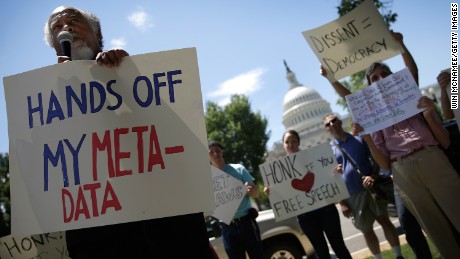Internet Privacy Vs National Security

Privacy vs. Security. drives common interest across pervious national borders and this personal privacy Privacy privacy vs. security public.
Human Rights and National Security; Human Rights and Privacy; Internet Privacy; This is the website of the American Civil Liberties Union and the ACLU Foundation.

Privacy vs Security Any intrusions on privacy for the sake of security would be History has shown that the excuse of national security has often led to the.
Video embedded The Miller Center is a nonpartisan affiliate of the University of Virginia that specializes in presidential Privacy vs. National Security. On Tuesday.
When Edward Snowden leaked massive troves of information about the National Security Agency s collection of electronic information, he started a debate over the tradeoffs between security and privacy. At least that s how President Obama framed it, arguing, we have to make some important decisions about how to protect ourselves and sustain our leadership in the world, while upholding the civil liberties and privacy protections that our ideals and our Constitution require.
Unfortunately, the security vs. privacy debate is largely over. As cybertechnologies pervaded our daily lives, we surrendered privacy, usually voluntarily. Consequently, framing the decisions before us as a contest between privacy and security is misguided; privacy died with the information age.
Information and communication technologies make life better. They improved economic productivity, efficiency, and economic growth. More personally, information digitization created opportunities to grow, relate to others, and generally realize one s creative potential. Connected to the Internet, we create, post, and retrieve vast amounts of data, almost all of which is in the hands of third parties.
These benefits come at a price. In order for the applications we use to improve their performance and offer us ever better services, they require information about us. We give it to them. Facebook s 1 billion active users, for example, share roughly 5 billion items a day, not counting the data Facebook collects about them.
Consider Google s privacy policy. Google collects personal information, data about the services you use and how you use them, server logs exactly the kind of thing the NSA was after, location information, data about the software you use, storage data and other identifying information that third parties may store on the hardware you use to access cyberspace. That is an awful lot of information when all you want to do is make a call, play a game or write a letter.
This is not to single Google out for praise or condemnation. Its policy is a standard for the industry. Most companies use that information to make our lives better. Surrendering data enables us to better exploit the Internet. When amalgamated, doctors can track public health risks, improve medical research, promote energy efficiency and more. Unsurprisingly, our adversaries use the technology too.
Not very long ago we considered all this information personal. But, as soon as we voluntarily shared it with others, the information stopped being truly private. Our behavior changed, but our expectations did not. So, when Snowden announced that A child born today will grow up with no conception of privacy at all. They ll never know what it means to have a private moment to themselves an unrecorded, unanalyzed thought, he was right. But the NSA had nothing to do with it.
There are, of course, legitimate reasons to constrain the government s data collection activities. The ongoing IRS scandal, for example, raises concerns about the concentration and abuse of power. We also simply may not want the government to know things that we readily share with multinational corporations; double standards are unexceptional in policymaking. But, the issue is not a tradeoff between security and privacy. Rather, it is a question of how much power we want to entrust to the government as it meets its obligation to provide for the common defense compared to the information we freely share with multinational corporations. That is a debate worth having, not the overcome-by-events argument Snowden claimed he wanted to start.
Eric Sterner is a fellow at the George C. Marshall Institute. Thinking of submitting an op-ed to the Washington Examiner. Be sure to read our guidelines on submissions for editorials, available at this link.
Sep 17, 2013 balance between protecting national security and our right to privacy. have privacy anymore. Now days with the internet we get to know.
- A briefing on ethical approaches to balancing the right to privacy and the need for heightened security Privacy vs. Security in the Aftermath Internet.
- National Security vs. Internet Privacy // Posted by Tec on 02/20/2014 PM its national security. Now, that we face this new domain, the internet;.
- When Edward Snowden leaked massive troves of information about the National Security the security vs. privacy security vs. privacy debate is already over.
Mar 29, 2014 After intelligence leaker Edward Snowden sparked a national firestorm regarding the NSA s bulk gathering of phone records, the privacy vs. security debate.
The security vs. privacy debate is already over, and privacy lost